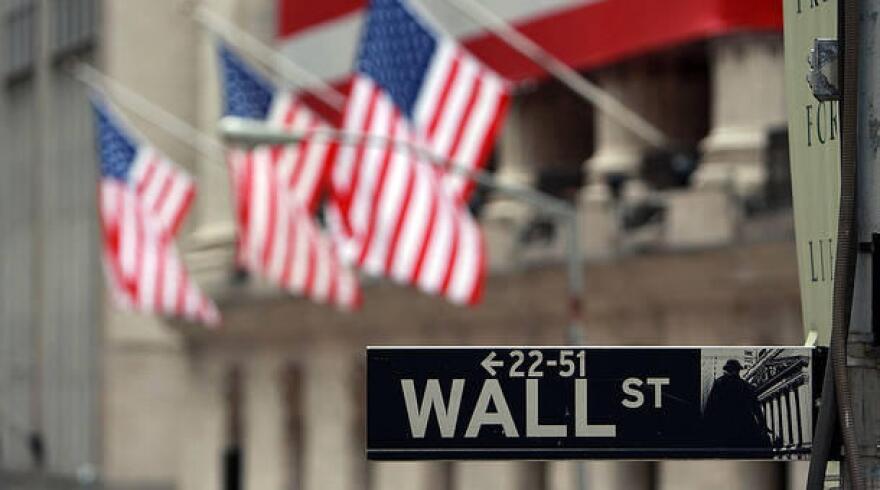The bulls ran wild in 2017 and into 2018 but have now given way to a sharp drop in the stock market. The Dow Jones Industrial Average dropped more than 1,100 points on Monday, which followed a 666-point decline on Friday. WBFO asked a local financial advisor, what's going on in the stock market?
When asked what's going on, Michael Curatolo of Georgetown Capital in Williamsville said it's a good question.
"You could say it's liquidity driven because there are no fundamental changes," he said. "Right now, all the buyers have stepped aside. Nothing really went up in value, it's not the money's flown anywhere. But there's a good old fashioned buyer's strike, where people are nervous, sitting on their hands. Everybody starts selling. Why? Just because they want cash. They want to lock in their capital."
Curatolo was asked about how 2017's sharp rise in the stock market may compare to the upward trend of the 1990s, when then Federal Reserve Chairman Alan Greenspan uttered the phrase "irrational exuberance" to express his concerns.
Curatolo replied that even after those words, the stock market continues a steady increase for the following four years. The difference now, he says, is low interest rate. That changed in late 2017, though, when the Federal Reserve raised them. Rising rates are now sparking fears among many investors.
"Rates started to creep up a little bit quicker than normal," he said. "That is causing a lot of anxiety in the stock market, this fear of rising interest rates."
Those rising interest rates could work against some of the recent developments in Washington, including corporate tax rate reductions.
Curatolo said the recent drops are not normal for Wall Street but, then again, neither were the months leading up to it.
"The whole year of 2017 wasn't normal with regards to the Dow," he said. "The stock market price averages never dropped more than three percent throughout the year. That was historic."
Historic, but to whose credit? President Donald Trump has, on numerous occasions during his time in office, seemingly taken credit for the stock market's gains and for economic growth. Curatolo says Trump may deserve a little credit but his influence is far lower than he likes to think. While corporate tax cuts may indeed boost profits, and while one-time cash bonuses to employees by several companies will boost confidence, there is also the risk of some recent moves backfiring.
The Washington Post has reported that due to lost revenues as the result of December's federal tax reform, federal cash reserves will run out sooner, meaning the government will be unable to pay bills sooner than expected. The Post reported the federal government plans to borrow up to $1 trillion this year, an 84 percent increase from 2017.
"If the cost of a deficit outweighs the benefit of a lot of people getting these bonuses, it will come back to bite everybody in the rear end," Curatolo said. "That's going to take a little bit of time. But that's an observation to keep an eye on, on the horizon."





